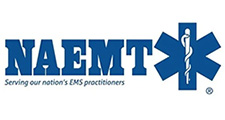
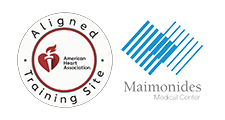
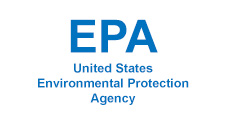
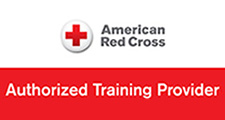
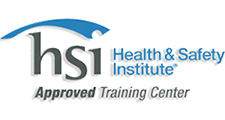
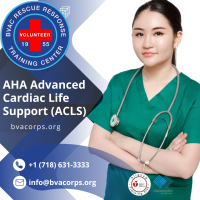
The American Heart Association's (AHA) Advanced Cardiac Life Support (ACLS) course is a specialized training program for healthcare professionals. It teaches them how to handle serious heart emergencies like cardiac arrest, stroke, and acute coronary syndromes, both in hospitals and outside.
Advanced Cardiac Assessment: Participants learn to read heart tests (ECGs) and recognize abnormal heart rhythms to manage heart conditions.
Airway Management: Training includes advanced techniques to keep airways open, such as using breathing tubes, which is crucial for maintaining oxygen flow.
Medication Administration: The course teaches how to correctly use various heart medications, including the right doses and methods of administration.
Cardiac Rhythms and Defibrillation: Learners get skilled in identifying and managing complex heart rhythms and using defibrillators to restore normal heartbeats.
Team Dynamics: Emphasis is placed on effective teamwork and communication in emergencies to ensure the best patient care.
Post-Cardiac Arrest Care: This includes managing patients after resuscitation, such as cooling techniques and handling post-resuscitation symptoms.
Simulation-Based Learning: Realistic practice scenarios help participants apply their skills in a controlled environment.
Algorithms: The course uses structured, evidence-based guidelines to manage specific heart emergencies.
The ACLS program is vital for healthcare workers in emergency rooms, intensive care units, and critical care transport teams. It prepares them to provide advanced heart care and make crucial decisions under pressure, improving patient survival rates and outcomes.
| Event Date | 03-01-2026 9:00 am |
| Event End Date | 03-01-2026 5:00 pm |
| Cut Off Date | 03-01-2026 |
| Individual Price | $295.00 |
| Location | BVAC Rescue Response Training Center |
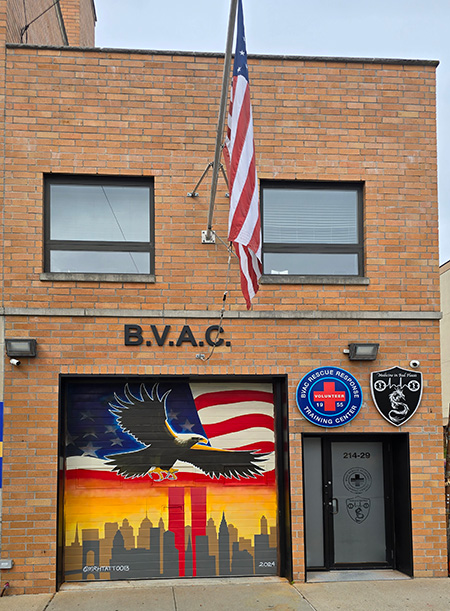
BVAC Rescue Response Training Center
214-29 42nd Ave
Bayside, NY 11361
Located on the Second Floor, No Elevator.
Located in the center of Bayside Queens
1 block east from Bell Blvd on 42nd Ave (Cross streets - Bell Blvd & 214 Place.
Near the LIRR (Bayside Station), Q13, Q31, N20 (Two blocks north of Northern BLVD).
Street Parking - Meter Parking on 42nd Ave
If you leave a deposit, the full course price will appear initially as you’re directed to the payment portal.
Once you reach the portal, only the deposit amount will be charged — not the full price.
AHA ACLS Course Agenda (8-Hour Session)8:00 AM - 8:30 AM: Registration & Introduction
8:30 AM - 9:15 AM: ACLS Guidelines Overview
9:15 AM - 10:15 AM: Respiratory Arrest & Pre-Arrest Emergencies
10:15 AM - 10:30 AM: Break 10:30 AM - 11:30 AM: Cardiac Arrest Management
11:30 AM - 12:30 PM: Arrhythmia Management
12:30 PM - 1:00 PM: Lunch Break 1:00 PM - 2:00 PM: Acute Coronary Syndromes & Stroke
2:00 PM - 3:00 PM: Post-Cardiac Arrest Care
3:00 PM - 3:15 PM: Break 3:15 PM - 4:15 PM: Mega Code Practice & Simulation
4:15 PM - 4:45 PM: Written Exam & Skills Testing
4:45 PM - 5:00 PM: Course Conclusion & Debrief
This tentative agenda is structured to ensure that all essential ACLS topics are covered within the 8-hour timeframe, including both theoretical knowledge and hands-on practice. Adjustments can be made based on the specific needs of the participants or the pace of the class. Subject to change. |
Headquarters:
214-29 42nd Avenue
Bayside, New York 11361
Mailing Address:
214-29 42nd Avenue
Bayside, New York 11361
Phone: + 1 (718) 631-3333
Contact Form
